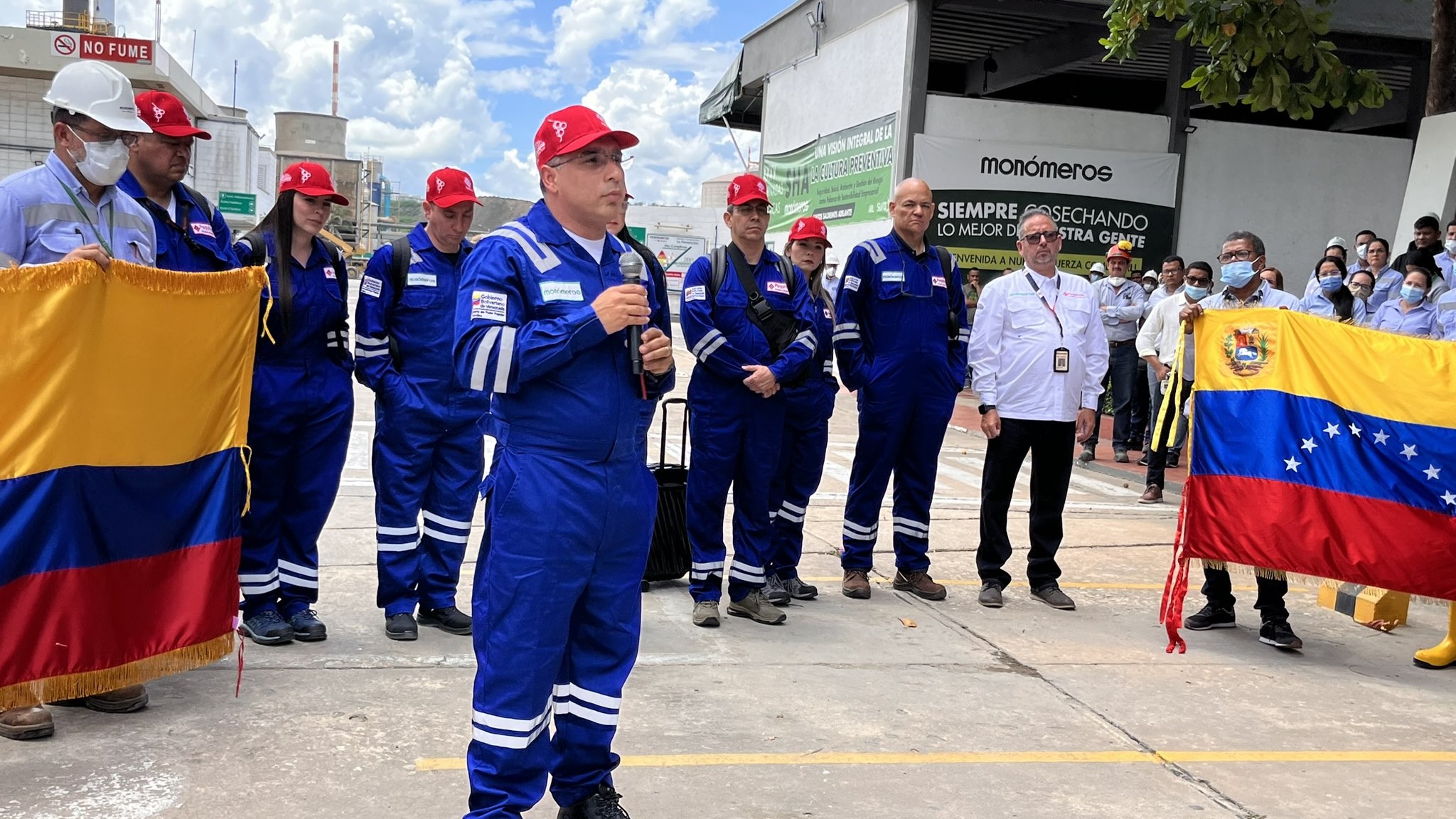The Colombian government recognized on September 19 the new management of the Venezuelan company Monómeros, located in Colombia, which had been appointed by the Venezuelan government. This decision marks the return of the company to the Venezuelan state after it spent the last three years controlled by opposition members linked to former deputy Juan Guaidó, with protection from former Colombian President Iván Duque.
The new directors had been appointed by Caracas in August. However, these appointments were awaiting the judgment on an appeal filed by Guaidó’s officials in order to be ratified. According to the decision issued by the Colombian Companies Superintendence, “no appeal is possible against the present resolution.”
The head of Colombia’s Superintendence of Societies, Billy Escobar, said that the body’s resolution confirms, “the will of the Venezuelan government to designate a board of directors, and this corresponds to the legality of the Colombian state in relation to the owners of a company.”
After the decision, Venezuela’s ambassador in Colombia, Félix Plasencia, said that “order, legality, the correct handling of matters” had been recovered.
“This is the end of a negative process designed to hurt, to cause suffering to Venezuelans and Colombians. Now, a company that belongs to the people of Venezuela returns to the power of the people,” he said.
Located in Barranquilla, Colombia, Monómeros is a Colombian-Venezuelan company whose majority owner is Pequiven, a state-owned petrochemical company owned by Venezuela. The plant is responsible for producing about 50% of the fertilizers used in Colombian production and employs 1,400 people.
Since it came under the control of leaders appointed by Guaidó, Monómeros has been the center of several cases of mismanagement and internal disputes by the opposition for control of its revenues, which began to finance the activities of Guaidó’s “interim government”. In September 2021, during the government of right-winger Iván Duque in Colombia, the Superintendence of Companies even put the company under its control, claiming the need to “remedy the critical legal, accounting, economic and administrative situation.”
The return of the company to the Venezuelan state had been a promise of Colombian President Gustavo Petro since his campaign. The decision to return control of Monómeros to Venezuela marks another step in the rapprochement between the two countries that has been underway since the new president came to power.
Skirting sanctions
Although the new management of the company has been sworn in, now appointed by the Venezuelan state, the reactivation of its production within the legal framework is still a matter of discussion between the countries. This is because Monómeros can only continue operating through a license that excludes it from the US Foreign Assets Control Agency’s sanctions list. In other words, the US government would need to permit the company to remain unaffected by the US’s unilateral measures determined against PDVSA and its subsidiaries.
With the company’s return to Venezuelan state control, it is uncertain whether Washington will renew permission for the company to continue producing and marketing its output.
In August, the Colombian ambassador had said that he was already in contact with US authorities to prevent Monómeros from being sanctioned.
Bogota’s concern relates to the production of urea, one of the main inputs used in the manufacture of fertilizers, which, until Guaidó took over the company, was supplied to Monómeros at special prices by Venezuela through Pequiven. Petro government’s plan is to normalize the Venezuelan company’s operations so that it can recover its suppliers and return to producing cheap fertilizers that will also lower the price of food for consumers.
In an interview with Colombian portal El Heraldo, the new director of Monómeros, Iván Sánchez Hernández, said that Pequiven plans to send about 12,000 tons of urea to Monómeros in the coming days.
“We are sure that this will impact Colombia across the board, especially with urea that will arrive at preferential prices and with payment facilities, which will allow us to stabilize [the company] quickly,” he said.
This article was originally published in Portuguese on Brasil de Fato.





